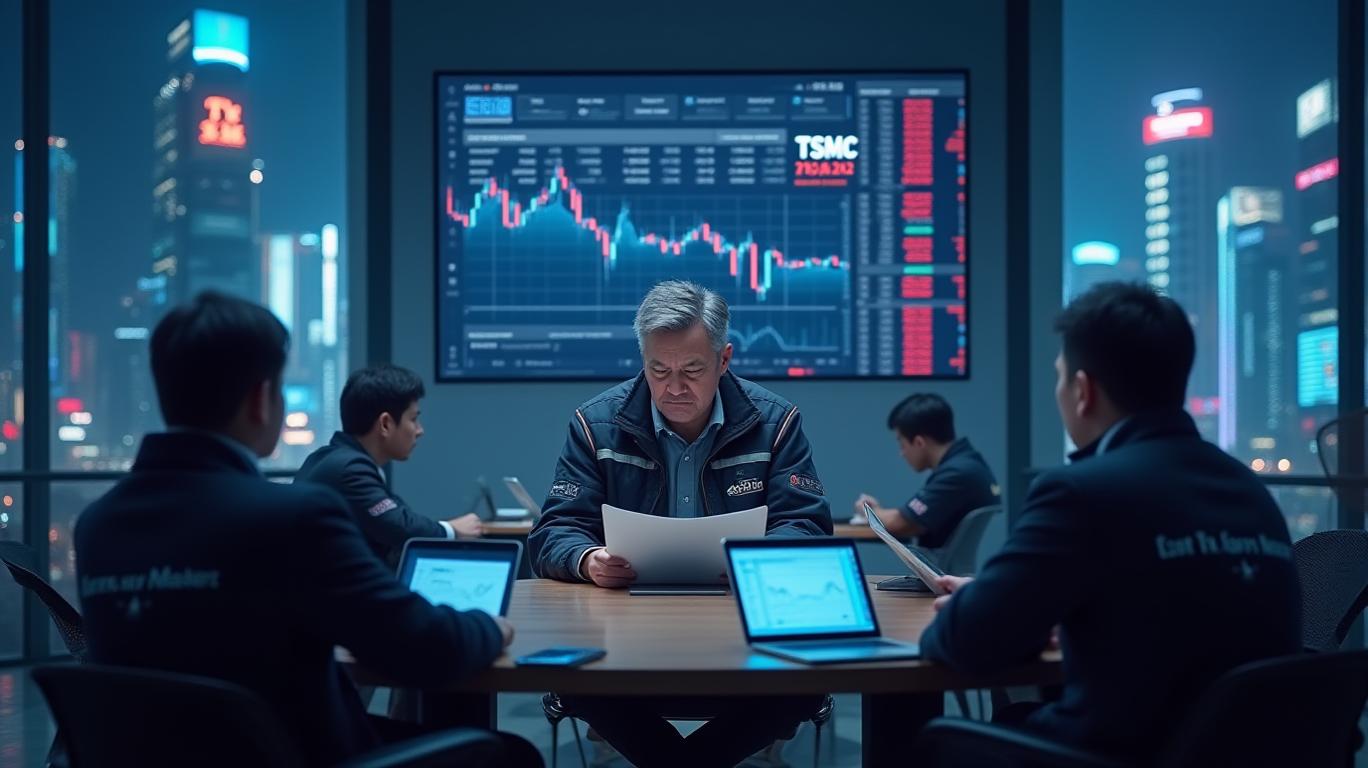TSMC Stock Slides 3.15% Amid Semiconductor Sector Uncertainty and Global Expansion Plans
Taiwan Semiconductor ManufacturingTSM-- Co. (TSMC) recently faced turbulent times in the stock market, highlighting the ongoing uncertainties in the semiconductor industry. On March 13, TSMC's stock fell by 3.15%, reflecting broader challenges affecting the sector globally. Several factors have intensified investor scrutiny on this giant, including fluctuating global chip demand and international trade tensions. These dynamics not only pressure TSMCTSM-- but also pose significant operational challenges for the leading player in the semiconductor manufacturing industry.
Over recent weeks, foreign investors have consistently divested from Taiwanese equities, contributing to a decline in TSMC's stock price of nearly 10%. The company has experienced a net sell-off of 1.55 billion shares, underscoring broader market anxieties amidst geopolitical and economic concerns. The volatility in TSMC's valuation mirrors the broader apprehensions about the semiconductor market's direction.
Amid these challenges, TSMC announced a substantial investment strategy focused on expanding its U.S. presence, committing $100 billion to develop its semiconductor manufacturing capabilities. The strategy includes constructing additional facilities in Arizona, aiming to capitalize on local demand and alleviate supply chain vulnerabilities. Despite the considerable scale of this investment, experts believe it won't dramatically shift the existing industry paradigm, given that TSMC's core advanced chip production will remain in Taiwan.
Industry analysts suggest that while the U.S. expansion signals TSMC's effort to diversify its operational base, the advanced manufacturing processes will continue to be centered in Taiwan. A vast majority of TSMC's cutting-edge work, particularly in producing 5nm and 3nm chips, remains firmly rooted in its home region due to the established ecosystem and talent pool there.
TSMC's move to expand in the U.S. raises questions about the balance between accommodating global demand and maintaining its technological edge. The company faces the challenge of managing higher operational costs in the U.S., which may impact profitability. Nonetheless, the strategic push into the U.S. market reflects TSMC's broader ambition to enhance its global supply chain resilience and address the increasing complexity of the geopolitical landscape.

Knowing stock market today at a glance
Latest Articles
Stay ahead of the market.
Get curated U.S. market news, insights and key dates delivered to your inbox.

Comments
No comments yet